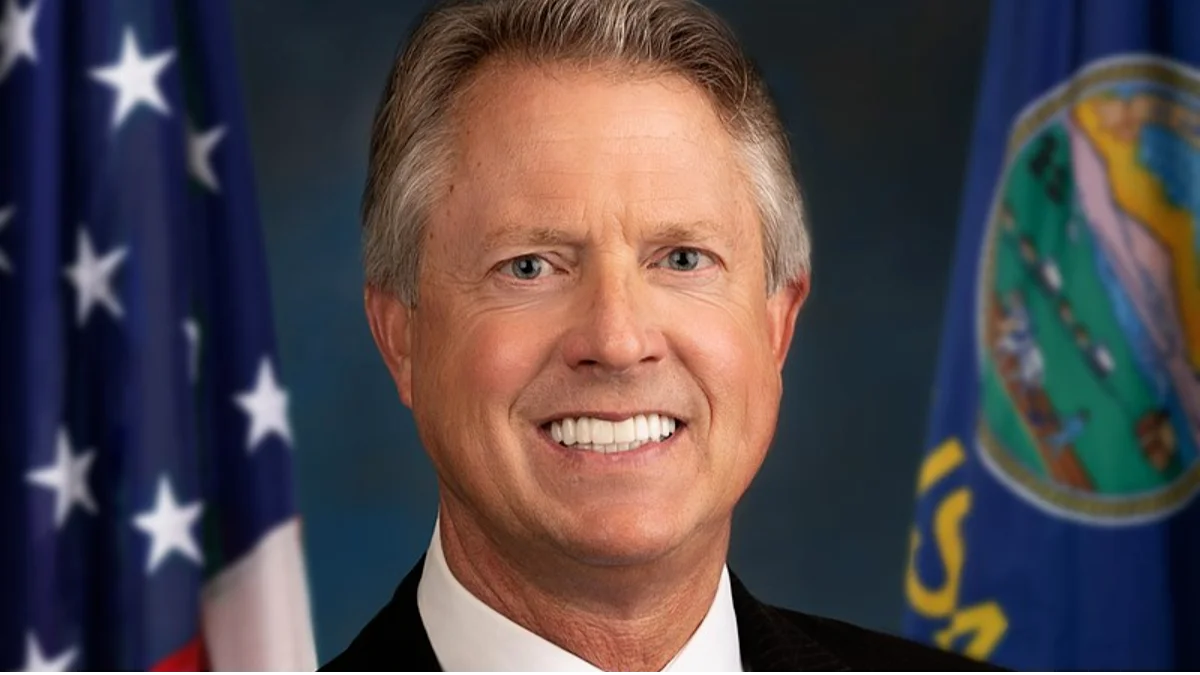Senator Roger Marshall, US Senator for Kansas | Official U.S. House headshot
Senator Roger Marshall, US Senator for Kansas | Official U.S. House headshot
U.S. Senator Roger Marshall of Kansas has published an opinion piece in The Washington Times, arguing that the ongoing war in Ukraine can only be resolved by understanding the region’s history, analyzing Russian President Vladimir Putin’s motivations, and supporting former President Donald Trump’s approach to negotiations.
In his op-ed, Marshall describes Russia’s invasion as a clear violation of international law. “Make no mistake about it: Russia’s invasion of Ukraine is a blatant crime of aggression under the Rome Statute of the International Criminal Court, and Vladimir Putin is a war criminal and murderer,” he writes.
Marshall points to reports that Russian forces have kidnapped thousands of Ukrainian children and targeted civilian infrastructure. He references Putin’s record in previous conflicts, stating, “Mr. Putin’s history is marked by the poisoning of spies and opponents, and we must never forget his brutal role in the Chechen wars from 1999 to 2009, when atrocities scarred an entire generation.”
The senator emphasizes his primary goals for Ukraine: ending violence and reuniting separated families. He notes his perspective as both a physician and legislator. “As someone relatively new to Congress and the Senate, I approach this brutal conflict not as a Sunday morning pundit reciting Cold War-era platitudes but as a physician who spent decades delivering more than 5,000 babies and providing primary care to women. I am a pragmatist who understands history, human psychology and the perils of endless stalemate.”
Marshall asserts that Trump’s proposed strategy—direct engagement with both sides, compromise, deadlines for negotiation—offers a viable solution. He traces Ukrainian history back centuries before Moscow was established to underscore Ukraine's longstanding identity separate from Russia.
“Ukraine’s story predates Russia’s story by millennia. The East Slavs established agrarian villages, practiced self-governance and were the true ancestors of Ukrainians, Russians and Belarusians. In the ninth century, Kyiv...became the heart of Kievan Rus’, a thriving political, cultural and religious center for East Slavs,” Marshall explains.
He argues that Putin views Ukraine through an imperial lens shaped by Soviet nostalgia: “Yet through Mr. Putin’s lens...he views Kyiv and Ukraine as an inseparable part of ‘Greater Russia’...He likewise sees Ukraine’s pivot toward NATO and the European Union as a betrayal and security threat.”
Marshall analyzes Putin's leadership style based on public actions: “Mr. Putin embodies a controlled, disciplined strategist who blends Machiavellian tactics with authoritarian protectionism...His KGB roots foster a worldview of manipulation, secrecy and patience.” He further details how these traits manifest in hybrid warfare tactics such as disinformation campaigns.
Turning to Western policy responses, Marshall criticizes what he sees as weak deterrence efforts by both U.S. President Joe Biden and European governments: “The worst approach with a bully like Mr. Putin is empty threats or name-calling without punch...Threatening NATO expansion on Russia’s border predictably triggered aggression.”
He also highlights Europe’s continued reliance on Russian energy supplies despite sanctions efforts: “The EU also remains grossly dependent on Russian energy. Even now...it imports 13% to 15% of its gas from Russia.”
Marshall advocates for keeping U.S. troops out of direct combat while maintaining support for European allies: “If the fighting continues, Europe must lead and U.S. troops must stay off the table.”
Describing Trump’s plan in detail, Marshall writes: “Mr. Trump understands this. He is threatening ‘massive sanctions’ and up to 100% tariffs on Russia if no deal emerges...His plan shifts to sustainable diplomacy by proposing a Putin-Zelenskyy summit, pragmatic territorial swaps with security guarantees for Ukraine and low-level talks aimed at achieving a ceasefire.”
Marshall concludes with support for Trump’s diplomatic approach over prolonged military involvement: “I support Mr. Trump’s path to peace...Endless war benefits no one except the military-industrial complex that President Eisenhower warned against.”
“It’s time to stop the killing, return the children and let tough diplomacy and strong actions prevail,” he writes.



 Alerts Sign-up
Alerts Sign-up